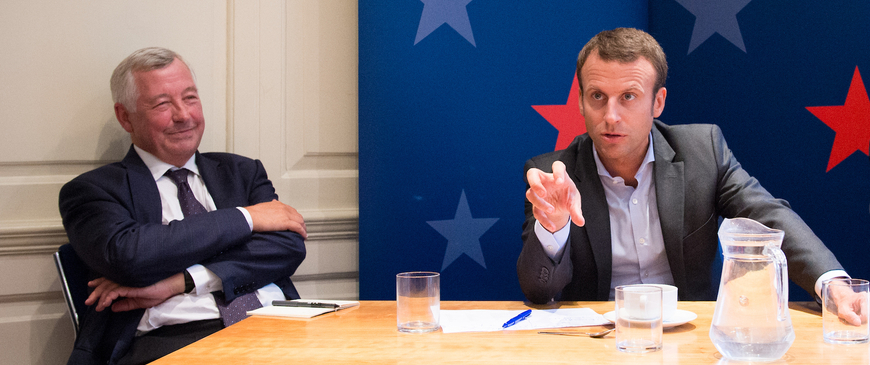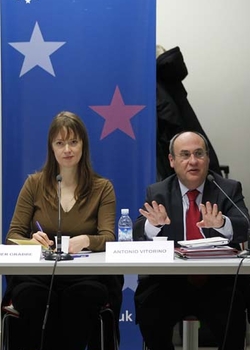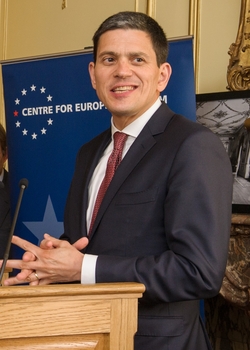
The CER's mission is as vital as ever
Although we are celebrating the 25th anniversary of the Centre for European Reform’s move into its first offices, the idea of a think-tank devoted to developments in Europe and committed to building better links between the UK and other member-states was conceived somewhat earlier.
Bored by an unusually dull discussion at the British-German ‘Königswinter’ conference on the banks of the Rhine, David Miliband and I slipped off and began to discuss the need for a group to spread the idea that Europe was not a foreign country and that we in Britain had much to learn and something to offer.
At the time – in 1994 – membership of the EU was not in serious dispute in Britain. The Labour Party had been encouraged by Jacques Delors and others to see the European Community as a vehicle, even an exemplar, for progressive ideas. Conservatives, though wary of federalism and a single currency, accepted that the single market, which Margaret Thatcher had helped to create, was a source of great opportunities for British business. Europe itself was still absorbing the shock of German reunification and considering how to deal with the ambition of the former Soviet satellite states in Eastern Europe to become part of the West. Britain supported enlargement but was otherwise largely distant from the ongoing debates on the future of the Union.
For the CER, the period from conception to formal birth certainly took more than nine months. For a while the organisation was no more than a loose network, meeting in the back room of the Marquis of Granby pub in Westminster, or in Baroness Elizabeth Smith’s flat in the Barbican. We had to find supporters prepared to invest in a group of people, most of whom were under 30. The CER would never have been more than a good idea without the support in particular of David Simon, then chief executive of BP, but also of Niall Fitzgerald, CEO of Unilever, and Michael Green, the boss of Carlton Television (whose chief of staff, David Cameron, signed one of the first cheques we received). They all deserve great thanks.
With a little money we found our first staff members – initially in 1997 a very young Ben Hall, now Europe Editor of the Financial Times and, in 1998, Charles Grant, who gave up a senior role at The Economist and took the risk of joining a start-up. Charles created the organisation which exists today and has succeeded in bringing together successive brilliant teams of individual specialists, many of whom are now in important roles across Europe. The organisation has won numerous awards and accolades for its outstanding publications and is recognised across Europe as a source of knowledge and experience.
The big question, of course, as we mark this 25th anniversary, is whether we have failed. We can hardly claim that Britain is more integrated into Europe than it was in the 1990s. Britain did have a beneficial influence – EU enlargement would not have happened in the way it did, when it did without the UK. But Britain’s most significant contribution to the EU’s development over the last three decades is arguably its departure. For many, including some who fought against Brexit, Europe is a love which dare not speak its name. We are told that for political convenience the EU is best not mentioned.
This is profoundly wrong. We can regret that we have not succeeded but despair is the ultimate blasphemy. Politics never reaches a full stop. The arguments continue, causes rise and fall and rise again, opinions and votes shift. Europe has not disappeared, it is still our major trading partner, and, despite Brexit, more often friend than foe. The case for engagement is not dead and if in 2023 the CER did not exist it would need to be invented.
This is not a matter of whistling in the dark or pretending that the Brexit vote never happened. On the contrary, the approach is based on the memory, which many of us of different political persuasions will have, of being told after an election that their chosen party was finished and would never return to power. Times and tides always change.
In fact, the process of rethinking may have already begun. Events (always a greater driving force in politics and international relations than ideology) are producing a reconsideration of the role and value of Europe in relation to Britain’s needs, and in the EU a comparable reappraisal of the value of Britain as a part of Europe’s future.
First, for the first time in nearly 40 years we have an enemy – a hostile neighbour with the willingness to attack without respect for existing boundaries or past agreements. The ‘settlement’ of 1991 which gave independence to the countries of Eastern Europe and the Caucasus has never been fully accepted in Moscow. Russia may not be able to turn the clock back to how things were in 1988, but despite its economic weaknesses, its extensive military capabilities (even after a year of attritional warfare in Ukraine) and multiple grievances do not suggest that we are likely to reach a normal, peaceful relationship with Moscow for a long time to come.
Second, we have a very different sort of challenge from China which, having emerged from poverty and isolation with remarkable success over the last 40 years, now wishes to be one of the pre-eminent powers – industrial, technological and military – in the world. That ambition may be understandable and legitimate even if the means China is using in pursuit of its goals are not; but a co-ordinated European response is essential if we want to maintain our rules and standards, on the environment, state control over investment and much else.
Third, isolationism is on the rise in the US, the great power on which we have relied for an umbrella of security and the defence of open international standards. Few of us can have watched the chaos of the American withdrawal from Kabul with anything but a mixture of pity for those being abandoned and a sharp realisation that, in comparable circumstances, we could be the next ones left behind.
True, the US has contributed more to the defence of Ukraine than any of its European allies, but the Biden administration sees countering China's growing power, not containing Russia, as its highest foreign policy priority. Donald Trump was openly hostile to the EU and NATO. Neither party in the US is now keen on free trade. The foundations on which Europe's security and prosperity have been built since World War Two are shaking. It may be premature to say "Now we know that we are on our own", as a Polish friend said to me after the US quit Kabul. But all these three dangerous trends should encourage Europeans – the British included – to band together.
For many in Britain, re-engagement with the EU might not be emotionally attractive. But it is needed, and needed with a level of integration clearer and more effective than anything achieved in the past. A recent opinion poll suggests that Brexit is now a matter of regret among the electorate by a margin of 53 to 34, with 13 per cent undecided. The process of re-engagement will not be simple but that only serves to make the work of the CER more important than ever. Far from despairing we should return to the spirit of those first conversations in Königswinter. The tide is with us.
Nick Butler helped to found the CER in the 1990s and was its first chairman. He is currently Chairman of the Policy Institute at King’s College London, and former Group Vice President for Strategy at BP.



